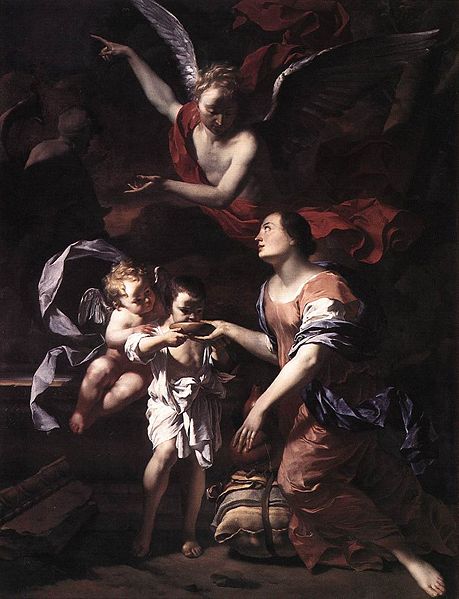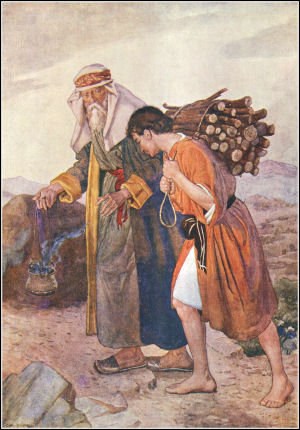In Genesis 17, God called Abram aside and confirmed His covenant with him and his descendants. As God confirmed the covenant, He also changed Abram's name to Abraham, meaning "Father to many nations". He similarly changed Sarai's name to Sarah, the meaning of which is not clear, although Hebrew scholars take it to mean princess or honoured.
God then covenanted to make Abraham a father to nations and to keep His covenant with His descendants, to be their God and to give them the whole of the land of Canaan.
However, a covenant required reciprocation. It was always that way. Two parties would always commit to each other and God now required Abraham to seal the covenant in blood, through the circumision of his foreskin. This was to be applied on the 8th day of every new born son.
There are noteable practical reasons for this including cleanliness, health and sexual considerations. There was a strong cultural consideration too, for the practice distinguished the Jews from the pagans, right up to the modern era. Remaining uncircumcised, risked being "cut off" (Hebrew karet) to bear reproaches like Arelim (uncircumcised) or Tame (unclean).
God also linked the ritual, in genesis 17, to nation bearing. The covenant related to Abraham's seed and his offspring. That was what God was blessing. The blood covenant: confirmed his fatherhood, sealed his seed, blessed his offsping and separated his people unto God.
The New Testament equivalent relates to circumcision of the heart, in which God seals us with His Holy Spirit to separate unto Himself a Holy People drawn from every tribe and nation.
God then covenanted to make Abraham a father to nations and to keep His covenant with His descendants, to be their God and to give them the whole of the land of Canaan.
However, a covenant required reciprocation. It was always that way. Two parties would always commit to each other and God now required Abraham to seal the covenant in blood, through the circumision of his foreskin. This was to be applied on the 8th day of every new born son.
There are noteable practical reasons for this including cleanliness, health and sexual considerations. There was a strong cultural consideration too, for the practice distinguished the Jews from the pagans, right up to the modern era. Remaining uncircumcised, risked being "cut off" (Hebrew karet) to bear reproaches like Arelim (uncircumcised) or Tame (unclean).
God also linked the ritual, in genesis 17, to nation bearing. The covenant related to Abraham's seed and his offspring. That was what God was blessing. The blood covenant: confirmed his fatherhood, sealed his seed, blessed his offsping and separated his people unto God.
The New Testament equivalent relates to circumcision of the heart, in which God seals us with His Holy Spirit to separate unto Himself a Holy People drawn from every tribe and nation.





No comments:
Post a Comment